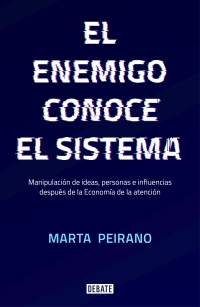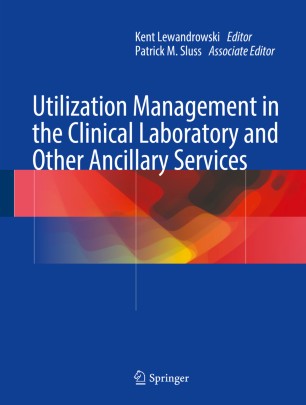Remaking the American Patient
How Madison Avenue and Modern Medicine
Turned Patients into Consumers
I've found this book of interest specially for europeans. Our health systems are currently under pressure. Public budgets are constrained and the private sector is growing. If you want to know what happens next, then this is the book to read. Just to prevent the disaster that comes afterwards, remember that US life expectancy has been declining in the last three years!. Maybe the time to act is now, just to avoid this predictable outcome. Take care.
29 de novembre 2019
28 de novembre 2019
Digital health transformation
Health in the 21st Century
Putting Data to Work for Stronger Health Systems
A new report by OECD highlights the potential digital health environment. We are still far from what they say. However, while reading it you'll be aware of its relevance. Chapter 5 is a must read:
Putting Data to Work for Stronger Health Systems
A new report by OECD highlights the potential digital health environment. We are still far from what they say. However, while reading it you'll be aware of its relevance. Chapter 5 is a must read:
Big data, and big data analytics, can be used at all three levels of health promotion and disease prevention – research, surveillance, and intervention – by:
-Allowing a more precise identification of at-risk populations, through a more comprehensive understanding of human health and disease, including the interaction between genetic, lifestyle, and environmental determinants of health;
-Enabling better surveillance of both communicable and non-communicable diseases; and
- Facilitating better targeted strategies and interventions to improve health promotion and
disease prevention.
21 de novembre 2019
Against the riggers
El enemigo conoce el sistema
Manipulación de ideas, personas e influencias después de la economía de la atención
Manipulación de ideas, personas e influencias después de la economía de la atención
Uno de los errores recurrentes de la izquierda es pensar que el populismo es la estrategia de los imbéciles, cuando la historia demuestra que no puede ser tan imbécil cuando consigue un éxito arrollador. Ya en Los orígenes del totalitarismo, Hannah Arendt explica que este tipo de estrategia está diseñada deliberadamente para desprender a la sociedad educada de sus recursos intelectuales y espirituales, convirtiendo a la población en cínicos o en niños, dependiendo del ego y el aguante de cada uno. Una doctrina del shock que precede a la escuela de Chicago y que ha sido característica de todos los totalitarismos contemporáneos, del nazismo alemán al estalinismo ruso, pasando por el fascismo italiano.En un mundo eternamente cambiante e incomprensible, las masas han llegado hasta el punto de que podrían, al mismo tiempo, creer todo o nada, pensar que todo era posible y que nada era verdad... Los líderes de masas totalitarios basaban su propaganda en la correcta premisa psicológica de que, en esas condiciones, uno podía hacer que la gente creyera la declaración más fantasiosa un día, y saber que si al día siguiente les dieran la prueba irrefutable de su falsedad, encontrarían refugio en el cinismo. En lugar de abandonar a los líderes que les habían mentido, clamarían que supieron en todo momento que la declaración era mentira y admirarían a los líderes por su agudeza táctica superior.
08 de novembre 2019
How much do countries spend on health?
Health at a Glance 2019: OECD Indicators
The european country that spends the most is Switzerland 12,2% over GDP. In Catalonia this figure was 7,6% in 2016 (less than Greece). Per capita income in 2016 was 35% more in Switzerland than in Catalonia, while health expenditure was 60% more in Switzerland. Where have the catalan taxes gone?. You know it and I know it. And everybody is aware that there is only one solution to have the appropriate public health expenditure. We have to say good bye as soon as possible.
The european country that spends the most is Switzerland 12,2% over GDP. In Catalonia this figure was 7,6% in 2016 (less than Greece). Per capita income in 2016 was 35% more in Switzerland than in Catalonia, while health expenditure was 60% more in Switzerland. Where have the catalan taxes gone?. You know it and I know it. And everybody is aware that there is only one solution to have the appropriate public health expenditure. We have to say good bye as soon as possible.
07 de novembre 2019
How to identify lab tests of low effectiveness?
Prevalence and Predictability of Low-Yield Inpatient Laboratory Diagnostic Tests
A new approach to understand the size of useless lab tests is to apply: "regularized logistic regression, regress and round, naive Bayes, neural network multilayer perceptrons, decision tree, random forest, AdaBoost, and XGBoost". This means that machine learning has its own space in laboratory medicine. In the article, they show high level of prediction for useless tests.
A new approach to understand the size of useless lab tests is to apply: "regularized logistic regression, regress and round, naive Bayes, neural network multilayer perceptrons, decision tree, random forest, AdaBoost, and XGBoost". This means that machine learning has its own space in laboratory medicine. In the article, they show high level of prediction for useless tests.
The best performing machine learning models predicted normal results with an AUROC of 0.90 or greater for 12 stand-alone laboratory tests (eg, sodium AUROC, 0.92 [95%CI, 0.91-0.93]; sensitivity, 98%; specificity, 35%; PPV, 66%; NPV, 93%; lactate dehydrogenase AUROC, 0.93 [95%CI, 0.93-0.94]; sensitivity, 96%; specificity, 65%; PPV, 71%; NPV, 95%; and troponin I AUROC, 0.92 [95%CI, 0.91- 0.93]; sensitivity, 88%; specificity, 79%; PPV, 67%; NPV, 93%) and 10 common laboratory test components (eg, hemoglobin AUROC, 0.94 [95%CI, 0.92-0.95]; sensitivity, 99%; specificity, 17%; PPV, 90%; NPV, 81%; creatinine AUROC, 0.96 [95%CI, 0.96-0.97]; sensitivity, 93%; specificity, 83%; PPV, 79%; NPV, 94%; and urea nitrogen AUROC, 0.95 [95%CI, 0.94, 0.96]; sensitivity, 87%; specificity, 89%; PPV, 77%; NPV 94%).This approach goes further than this book:
03 de novembre 2019
It's always about quality
La qualité des services de santé. Un impératif mondial en vue de la couverture santé universelle
Improving healthcare quality in Europe. Characteristics, effectiveness and implementation of different strategies
Improving healthcare quality in Europe. Characteristics, effectiveness and implementation of different strategies
The essential element of access to healthcare overshadows the understanding that better health can only be achieved if accessed services are also of high quality. The Sustainable Development Goals spell this out quite clearly: “Achieve universal health coverage, including financial risk protection, access to quality essential health-care services and access to safe, effective, quality and affordable essential medicines and vaccines for all” (Goal 3, Target 8). Indeed, ensuring that healthcare services are of good quality is an imperative for policy-makers at all levels and an important contributor to health system performance.
02 de novembre 2019
Eurohealth
Everything you always wanted to know about European Union health policies but were afraid to ask
I have to say that I am not afraid to ask about health policies in EU because EU is basically a market. Therefore nothing to ask. Social policy is out of the real scope of EU.However, as a regulator of the market for health has clear examples of disfunctioning. For example, implantable medical devices regulation currently applied was enacted in 1990. New regulation will be applied next year, after 30 years of regulatory vacation. Nothing to add. Taxes haven't been on vacation. Shame on Europe. By the way, you'll not find minor details like this one in the book.
I have to say that I am not afraid to ask about health policies in EU because EU is basically a market. Therefore nothing to ask. Social policy is out of the real scope of EU.However, as a regulator of the market for health has clear examples of disfunctioning. For example, implantable medical devices regulation currently applied was enacted in 1990. New regulation will be applied next year, after 30 years of regulatory vacation. Nothing to add. Taxes haven't been on vacation. Shame on Europe. By the way, you'll not find minor details like this one in the book.
01 de novembre 2019
The impact of an ageing population (2)
Working Better With Age
WORKING AT OLDER AGES
Why it’s important, how it affects health, and the policy options to support health capacity for work
The message of OECD report:
WORKING AT OLDER AGES
Why it’s important, how it affects health, and the policy options to support health capacity for work
The message of OECD report:
The number of older inactive people who will need to be supported by each worker could rise by around 40% between 2018 and 2050 on average in the OECD area. This would put a brake on rising living standards as well as enormous pressure on younger generations who will be financing social protection systems. Improving employment prospects of older workers will be crucial. At the same time, taking a life-course approach will be necessary to avoid accumulation of individual disadvantages over work careers that discourage or prevent work at an older age; What can countries do to help? How can they give older people better work incentives and opportunities? This report provides a synthesis of the main challenges and policy recommendations together with a set of international best practices to foster employability, labour demand and incentives to work at an older age.And the WHO report message:
Dominant policy approaches such as increasing the statutory retirement age are often overshadowed by a lack of attention to two critical questions: firstly, are older workers in sufficiently good health to work longer? And secondly, does increasing the statutory retirement age have consequences, negative or positive, for the health of older workers?
Subscriure's a:
Missatges (Atom)





